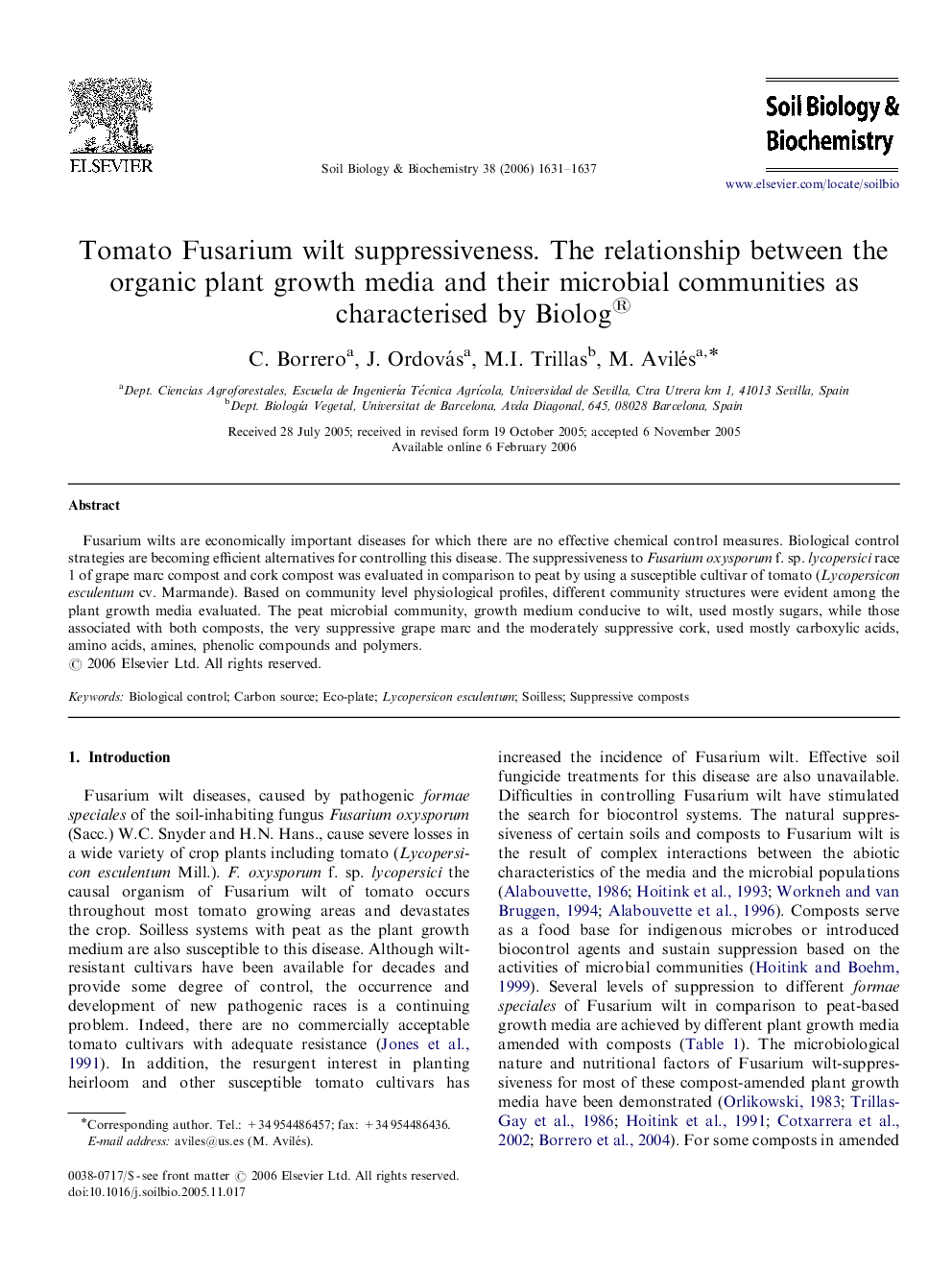| Article ID | Journal | Published Year | Pages | File Type |
|---|---|---|---|---|
| 2026567 | Soil Biology and Biochemistry | 2006 | 7 Pages |
Fusarium wilts are economically important diseases for which there are no effective chemical control measures. Biological control strategies are becoming efficient alternatives for controlling this disease. The suppressiveness to Fusarium oxysporum f. sp. lycopersici race 1 of grape marc compost and cork compost was evaluated in comparison to peat by using a susceptible cultivar of tomato (Lycopersicon esculentum cv. Marmande). Based on community level physiological profiles, different community structures were evident among the plant growth media evaluated. The peat microbial community, growth medium conducive to wilt, used mostly sugars, while those associated with both composts, the very suppressive grape marc and the moderately suppressive cork, used mostly carboxylic acids, amino acids, amines, phenolic compounds and polymers.
